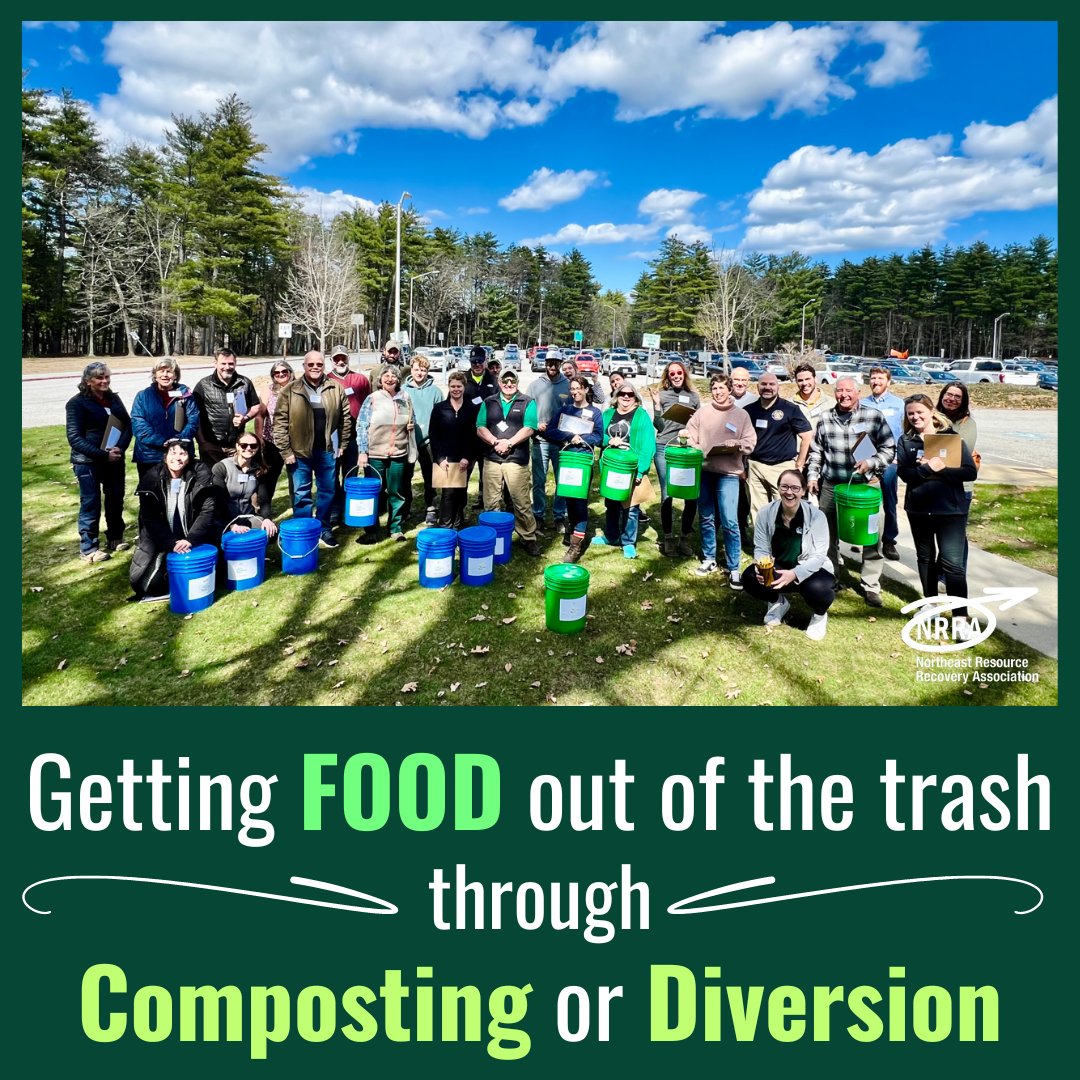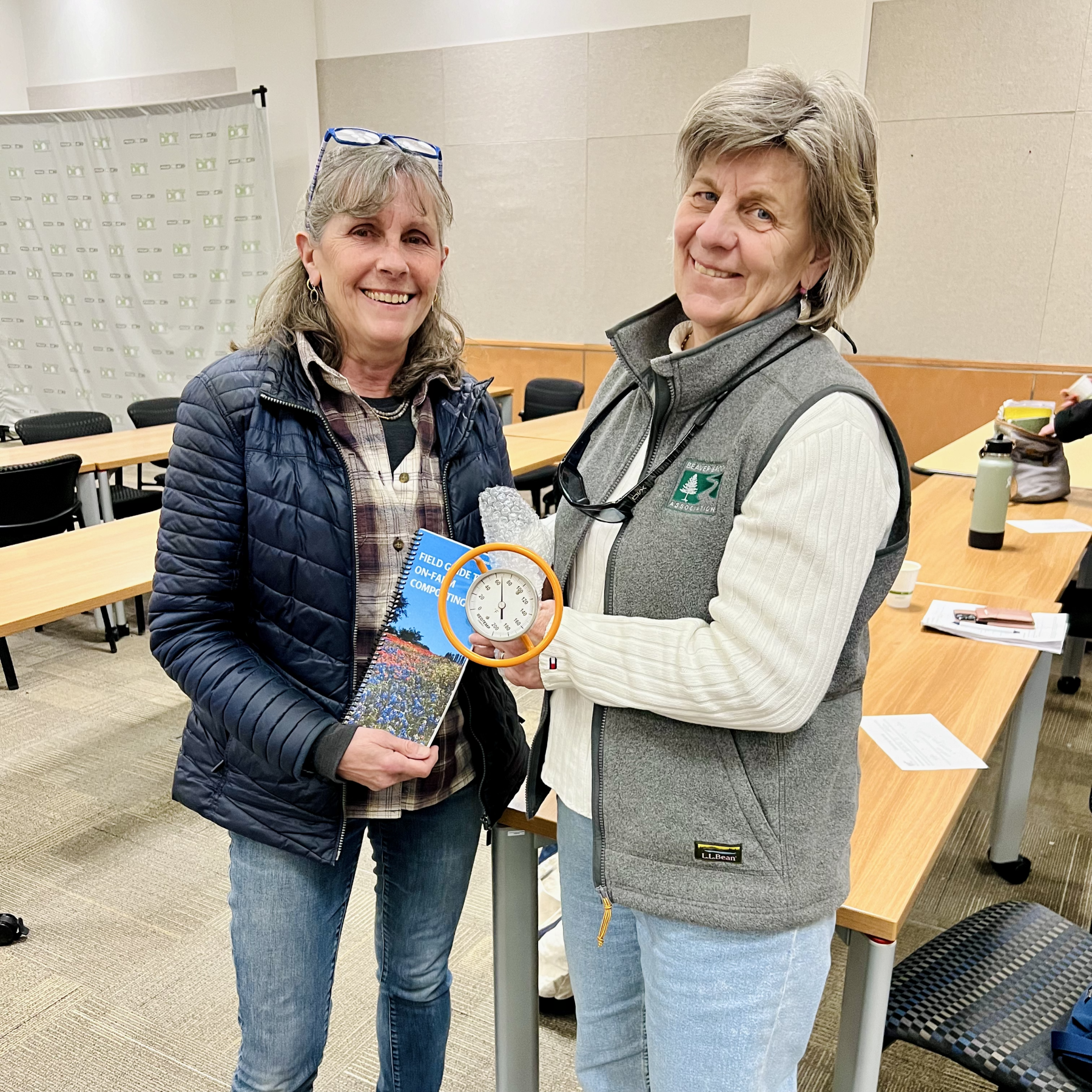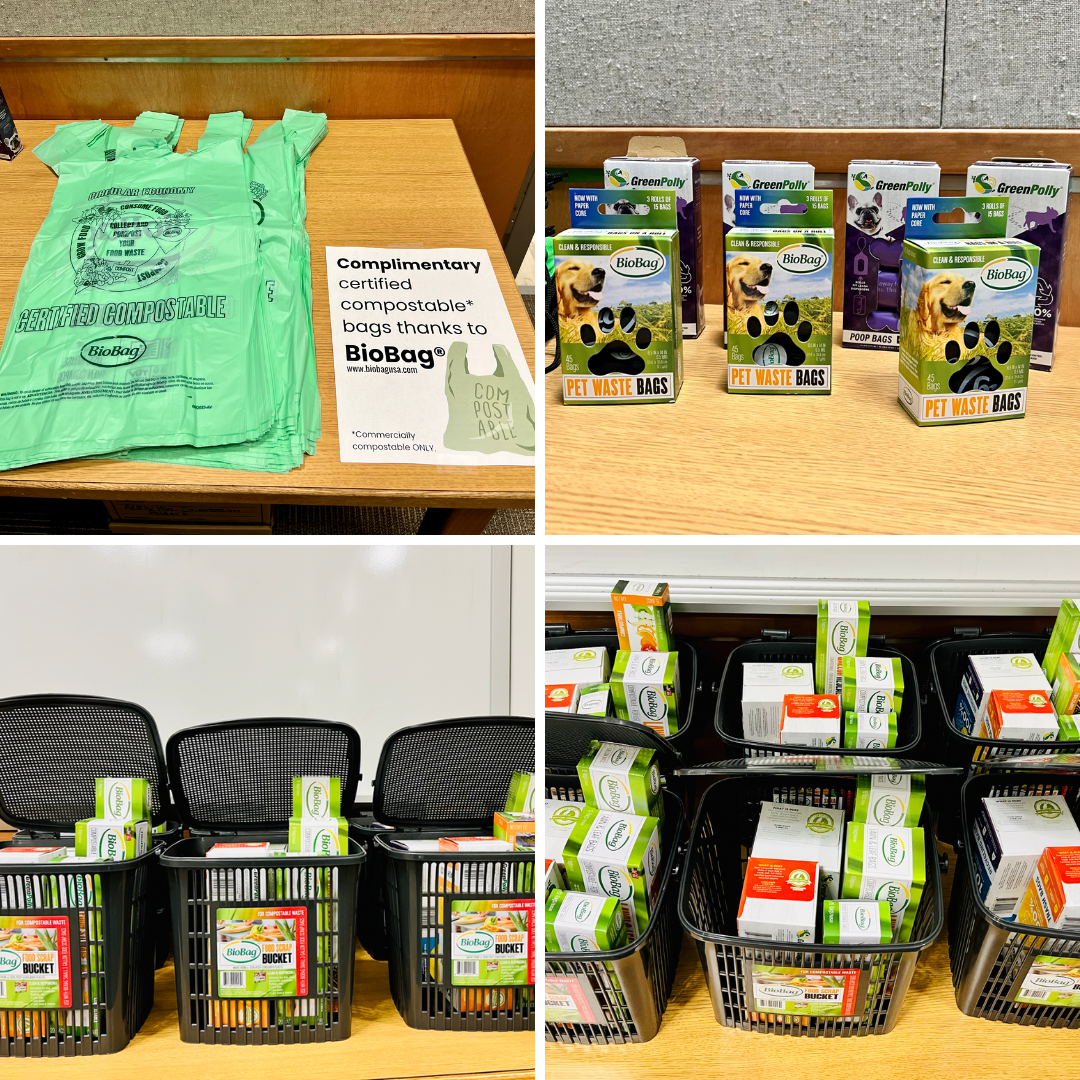Getting Food Waste OUT of the Trash Through Diversion or Composting
On April 16 and 17, NRRA teamed up with the NH Department of Environmental Services and the Maine Compost School to host two full days of food waste diversion and composting workshops. With over 70 registrants, each workshop hosted between 30 and 40 attendees from municipalities and businesses across New Hampshire, captured on a map of the state.
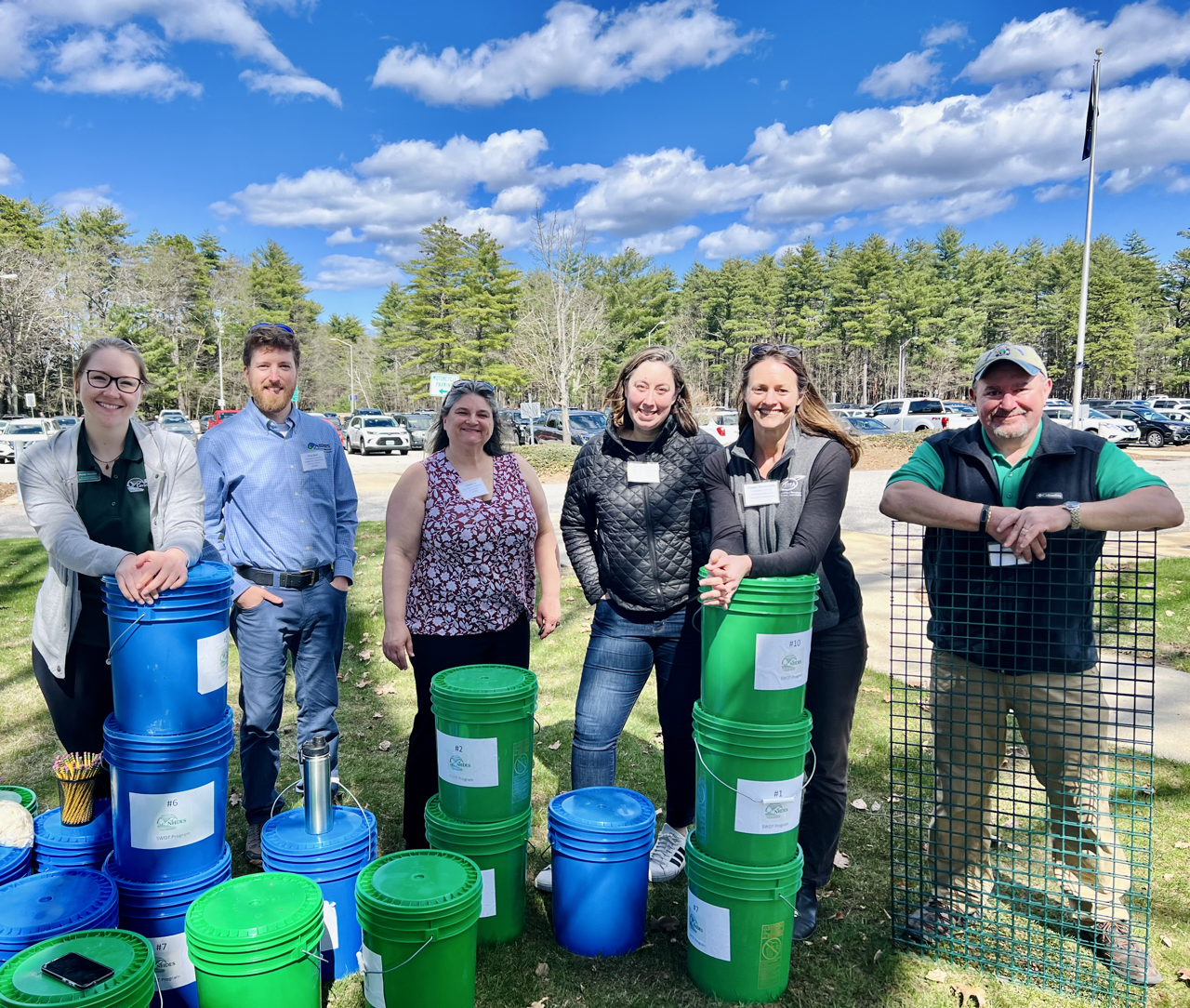 The workshop series was supported by an NRRA grant through the USDA Rural Utilities Service. The goal of the grant is to reduce or eliminate pollution of water resources by providing funding for organizations that provide training to improve the planning and management of solid waste sites, such as composting and food waste diversion away from landfills or incinerators.
The workshop series was supported by an NRRA grant through the USDA Rural Utilities Service. The goal of the grant is to reduce or eliminate pollution of water resources by providing funding for organizations that provide training to improve the planning and management of solid waste sites, such as composting and food waste diversion away from landfills or incinerators.
Presenters included NRRA Executive Director, Reagan Bissonnette; NRRA Communications Manager, Andrea Folsom; NHDES Solid Waste Operator Training Coordinator, Tara Albert; NHDES Materials Management, Education, and Planning Supervisor, Mike Nork; NHDES Waste Reduction & Diversion Planner, Paige Wilson; and Director of the Maine Compost School, Mark King. The workshops combined lecture, interactive components, a panel forum, and hands-on work sessions.
Said one attendee,
"As an educator, I very much appreciate the structure of the workshops - small chunks, varying presentation styles, invitations to participate, no one reading from slides, mix of text and images, and the range of topics. It is rare to encounter a workshop that shows such an awareness of how people learn."
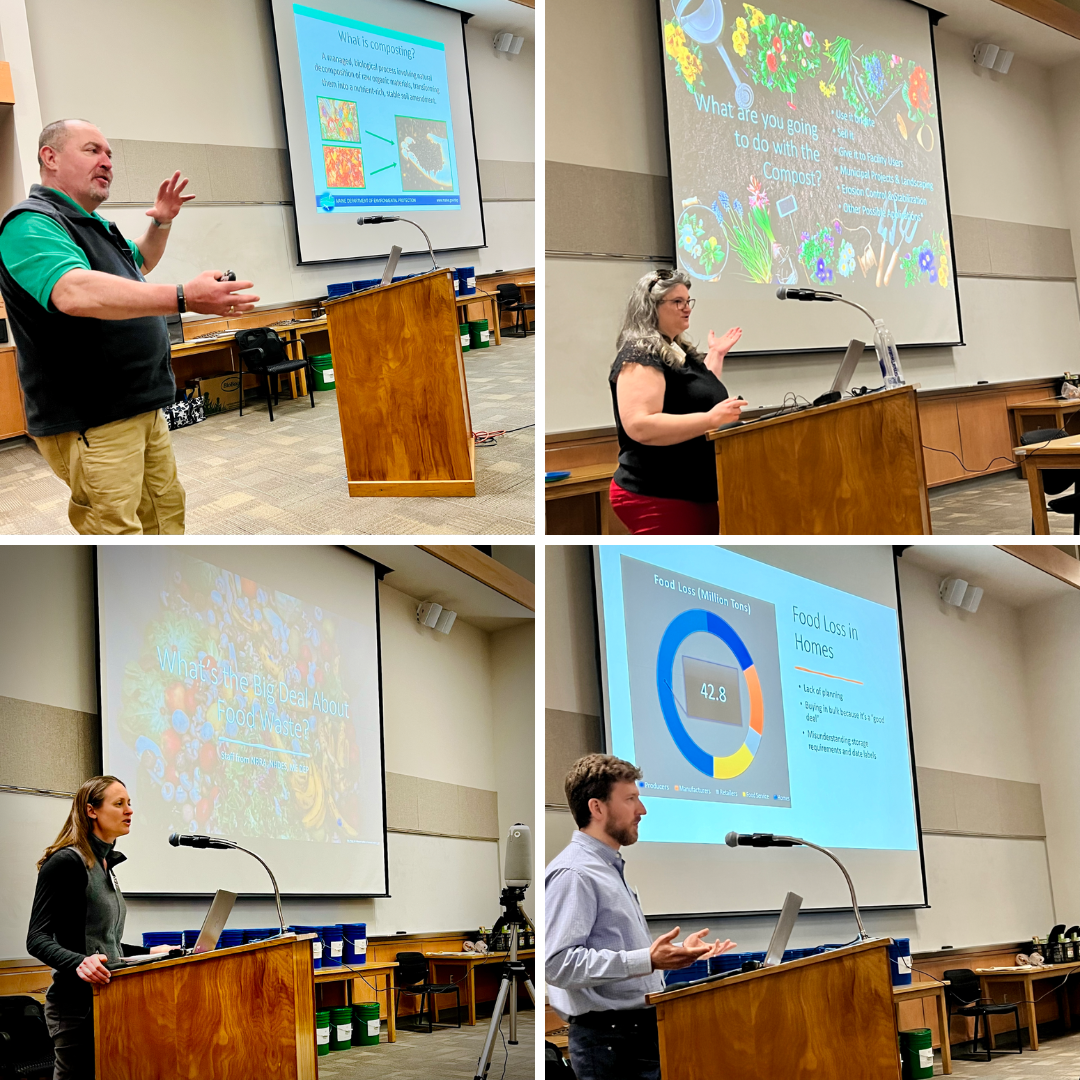
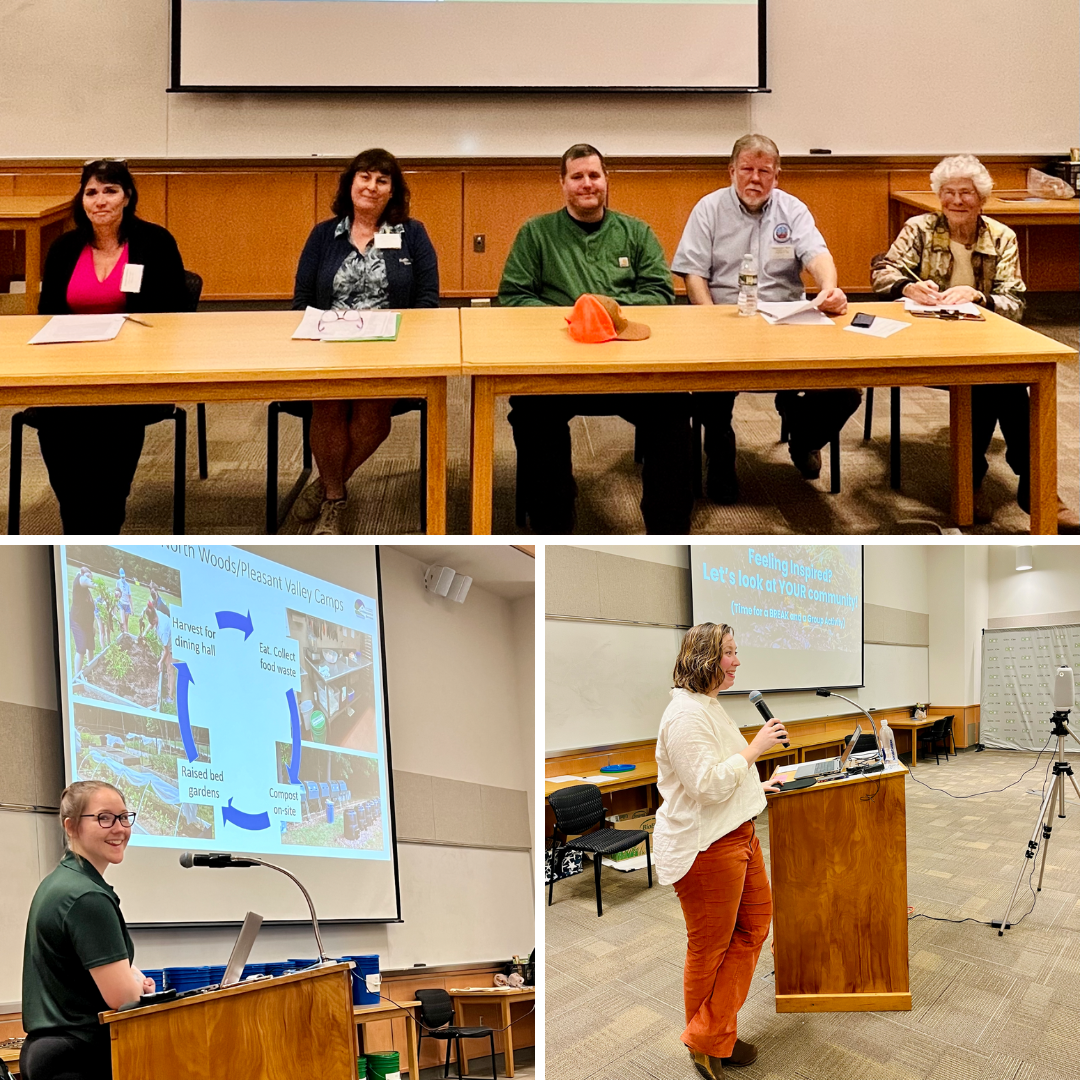
Clockwise from top left: Mark King, Tara Albert, Workshop 3 Composting Panel, Andrea Folsom, Paige Wilson, Mike Nork, and Reagan Bissonnette
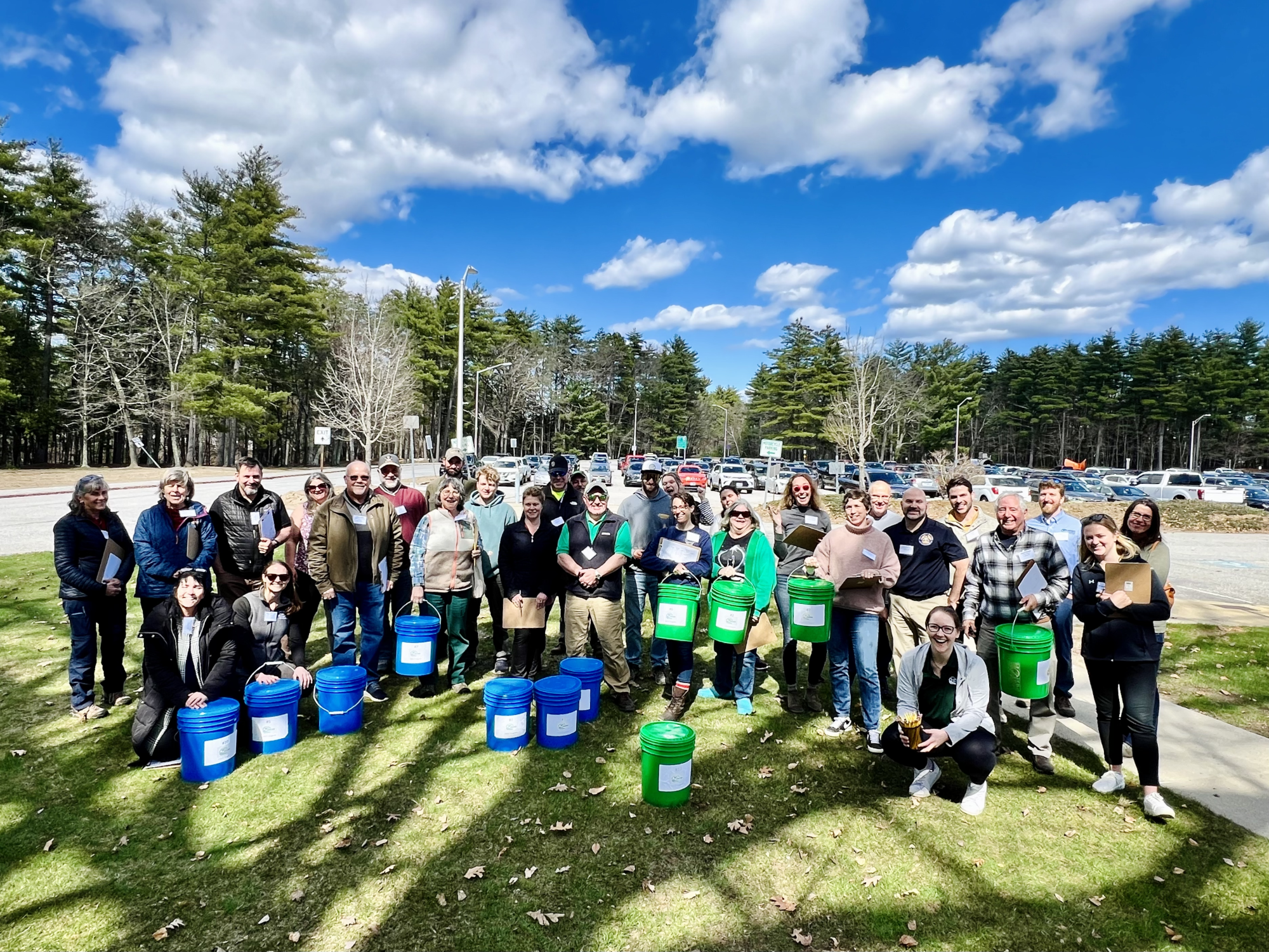
Our Workshop 2 Composting Attendees were all smiles after figuring out the right mix of compost feedstock during a hands-on activity.
If you didn't have a chance to attend one - or all - of the workshops, fear not! Presentation slides, notes, and worksheets are listed below, along with links to the recordings now hosted on the NHDES SWOT Channel.
Workshop 1: What's the Big Deal About Food Waste?
Our opening workshop was designed for solid waste operators; community members looking to learn about waste diversion; and municipal officials wishing to understand how their waste can affect the bottom line in the town. This workshop takes a 30,000 foot-view of food waste and food waste diversion, starting with the impact of food waste within the waste stream.
Participants were surprised to learn that in 2022, roughly 38% of US food supply went unsold or uneaten!
Workshop 2: Composting Basics - Don't Oversimplify It!
This workshop took a deep-dive into composting, with attendees learning exactly what constitutes the perfect compost recipe and why it works. The first half of the workshop was a dynamic lecture by Mark King and the second half a hands-on activity where participants investigated ten compost feedstock buckets and then crafted their own compost recipes with the materials at hand!
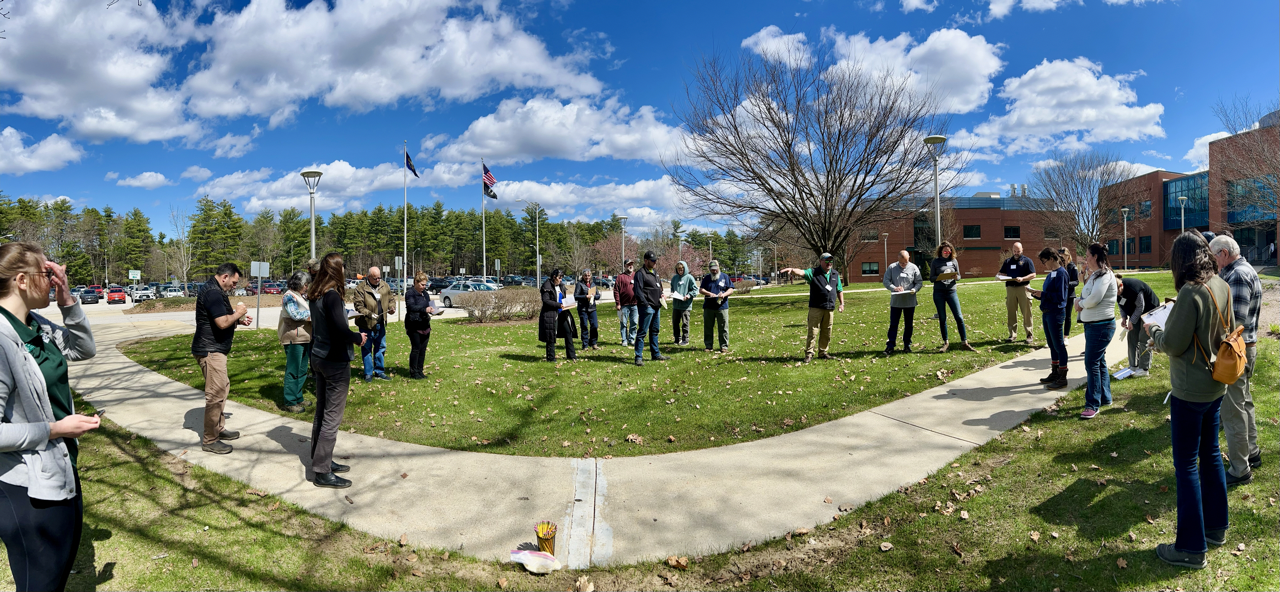
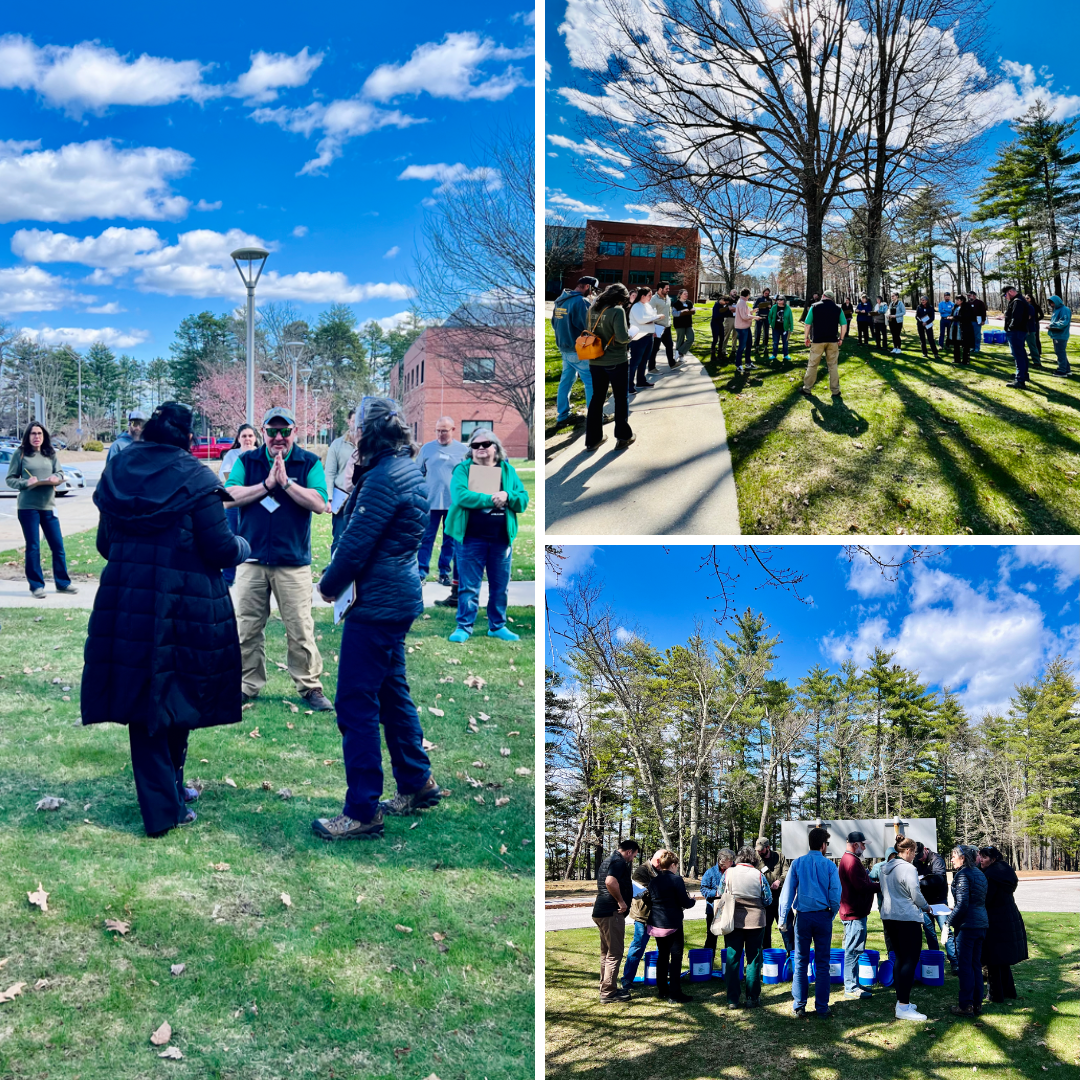
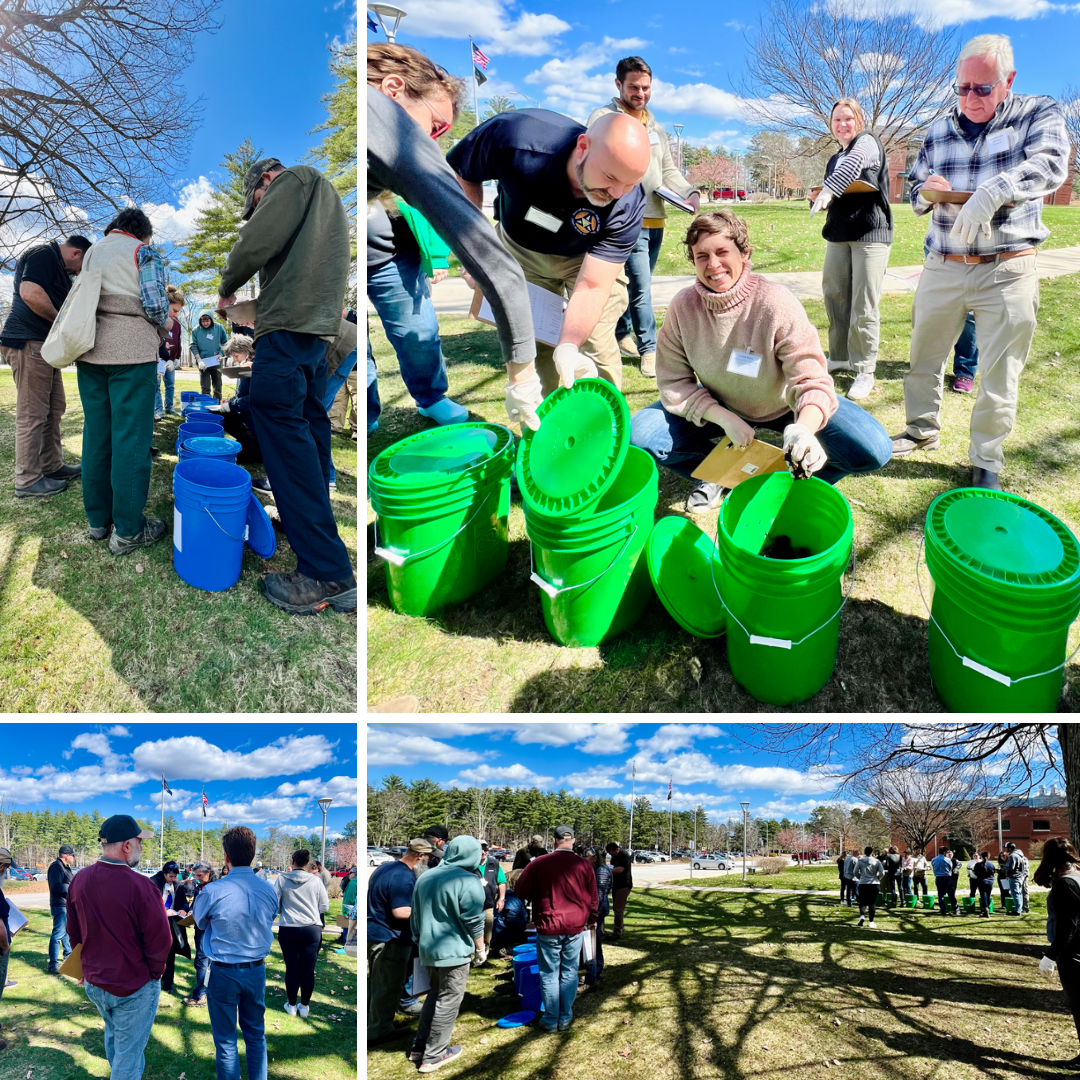
Workshop 3: Implementing Food Waste Diversion Activities at Your Facility
Our day-two opening workshop was designed for solid waste facility operators, owners, and managers who work at permitted solid waste facilities in NH. The workshop included both instruction and an expert panel, touching on permitting and siting considerations, the collection process, and the importance of the operating plan. Attendees were then joined by a panel of municipal operators who have composting or other food waste diversion at their facility. Panelists included Rhonda Whittier of Pelham, NH; Joan Cudworth of Hollis, NH; Steve Bullock of Lee, NH; and Bob Harrington of New London, NH. Unfortunately, we learned of a technical glitch after-the-fact and the panel discussion was not recorded.
One participant noted:
"I loved the panel and hearing how towns in NH are making local solutions!"
Workshop 4: Education, Outreach, and Grabbing the Public's Attention
The final presentation was designed to bring all of the lessons together as participants think through what a composting or food waste diversion program would look like in their community. It also included the multitude of ways participants can engage with their community and grant options to start or strengthen a food waste diversion program. After an hour of lecture, attendees broke into groups dependent on whether or not they currently have a food waste diversion program and then further into the type of collection for their program - be it onsite collection and onsite processing or onsite collection and offsite processing.
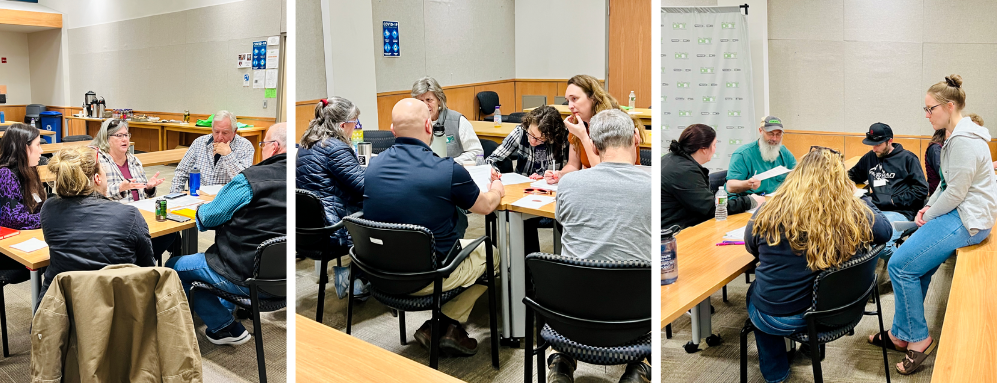
Participants worked alongside the six presenters to first work through a Food Waste Diversion Program Planner so they could think through what a diversion or composting program may look like in their community. They then thought through the education and outreach options within their community using a Municipal Education and Outreach Audit. Finally, participants hammered out the basics of messaging as well as who and on what platform would be able to share their message using the Municipal Education and Outreach Planner.
Looking for more information about composting and food waste diversion? Be sure to check out our Food Waste Diversion and Composting Toolkit for additional helpful resources or contact NRRA at info@nrrarecycles.org.
Disclaimers:
This material is based upon work supported under a grant by the Rural Utilities Service, United States Department of Agriculture. Any opinions, findings, and conclusions or recommendations expressed in this material are solely the responsibility of the authors and do not necessarily represent the official views of the Rural Utilities Service. Rural Community Assistance Partnership, Inc., is an equal opportunity provider and employer.
Northeast Resource Recovery Association complies with applicable Federal civil rights laws and does not discriminate on the basis of race, color, national origin, age, disability, or sex (including pregnancy, sexual orientation, and gender identity).
